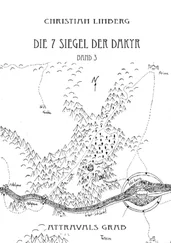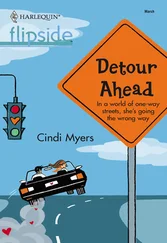Joanna let go.
When Galina finished, she felt Joelle’s forehead again. “A little cooler, yes?”
But when Joanna felt it, it was like touching fire.
Galina diapered Joelle, lifting her off Joanna’s lap, rewrapped her in a rough wool blanket. Joelle was still wailing away—her red face clenched like a fist—as Joanna rocked her against her breasts and shuffled back and forth in the small space allotted to them. She sang to her, barely above a whisper.
Hush, little baby, don’t say a word,
Mommy’s gonna buy you a mockingbird.
If that mockingbird don’t sing . . .
Her mother used to sing that to her. She’d play the James Taylor, Carly Simon duet on the living room stereo and dance around the Castro Convertible with Joanna in her arms. It had always made Joanna feel safe and adored.
It wasn’t working with Joelle.
She’d stopped screaming, but only because she’d cried herself out. When she opened her mouth, there didn’t seem to be enough energy left to emit a human sound.
Galina said, “I have to take her now.”
“No.”
“They’ll get angry if I don’t.”
Joanna was too scared to notice, but later she’d turn Galina’s words over and over in her mind.
They’ll get angry if I don’t.
The first tiny admission that in the us-versus-them dynamic of the household—Maruja, Beatriz, and Joanna versus their guards—there might be another them too.
Galina and her.
Galina would’ve left Joelle with her, only she couldn’t because they’d get angry.
In a world devoid of tangible hope, you grasped at verbal straws.
She gave Joelle back to Galina. She was led back to her prison, otherwise known as their room, where Maruja and Beatriz saw the expression on her face and asked what was wrong.
WHEN EVENING FEEDING CAME AROUND, GALINA SHOWED UP AT the door looking ghostly pale. That wasn’t the alarming part.
She was Joelle-less— that was the alarming part.
“What happened? Where is she?” Joanna asked.
“In her crib. She finally cried herself to sleep. I didn’t want to wake her.”
She took Joanna to the feeding room anyway, past two mestizo guards playing cards—one of them a girl with chestnut skin and shimmering black hair that fell to the small of her back. After Galina shut the door, she said, “She has pneumonia.”
“Pneumonia?” The word resounded like a slap. “How do you know? You’re not a doctor. Why would you say that?”
“Her chest. I can hear it.”
“It could be a virus? Just the flu?”
“No. Her lungs—they’re filled with flúido. ”
Fear gripped Joanna and refused to let go.
“You’ve got to get her to a hospital, Galina. You have to. Now.”
Galina stared at her with an expression that under different circumstances Joanna might’ve termed tender.
It was the tenderness shown toward the hopelessly brain-addled.
“There are no hospitals,” Galina said. “Not here.”
THAT NIGHT JOANNA COULD HEAR HER DAUGHTER SCREECHING.
It made the guards unhappy. It got on their nerves. In the middle of the night one of them pulled her off the bed, where she’d been holding Beatriz’ hand to keep from running to the door and screaming at them.
“Vamos,” he said, shoving her toward the open doorway.
Beatriz got up to protest.
“Para eso —”
The guard, who was called Puento and was usually docile and amiable, shoved Beatriz against the wall.
A crying baby can test a new parent’s patience, according to Mother & Baby magazine.
Where was Puento taking her?
After he’d locked the door behind them, another guard walked up to them carrying Joelle at arm’s length. Later Maruja would tell her that FARC guerrilleros were particularly nervous about getting sick, since there were no doctors around to treat them.
The jittery boy literally dumped Joelle into her arms, then motioned her toward the feeding room. He ushered her in at a safe distance, giving Joanna a small shove in the back with the rifle butt. He slammed the door behind them.
Joelle was swimming in sweat.
Every breath produced a strangled, raspy gurgle. When Joanna put her ear to Joelle’s chest, it sounded like someone dying of emphysema.
Where was Galina?
Joanna pounded on the door—once, twice, three times. Eventually, Puento opened it, looking intent on pounding something back.
Joanna asked him to get Galina to come immediately, right now, this very second.
No response.
She asked for a rag instead, nervously pantomiming the act of wringing one out. She couldn’t tell whether Puento understood her, and if he did, whether he cared.
She’d say no. He slammed the door in her face.
Minutes later, though, he returned with a piece of filthy cloth. He threw it in her general direction.
She’d neglected to ask for agua —fortunately, the rag seemed damp enough without it. Joanna went through the now familiar ritual of unwrapping and undiapering her baby, trying not to notice her nearly blue skin and hummingbird shiver. She wiped her down the way Galina would have.
“It’s going to be okay,” she whispered to her daughter. “We’re going to get home and see Daddy. You’re going to like New York. There’s a merry-go-round, and in the winter we can ice-skate. There’s a zoo with polar bears and monkeys and penguins. You’ll love the penguins. They walk kind of funny.”
She held her baby the entire night. Most of the time Joelle screamed and moaned and gurgled. Those were the good moments. The terrifying ones were when Joelle slipped into sleep and her breathing seemed to stop altogether.
Once, when Joelle was clearly and demonstrably alive, basically screaming her lungs out, Puento opened the door and looked in with a nearly murderous expression. He raised his ever-present Kalashnikov—that’s what Paul said they were called, Russian-made rifles, ancient and unreliable—and pointed it straight at Joelle’s head.
“I’ll make her stop. She’s sick. I’ll get her to stop. I promise.”
He lowered the rifle and shut the door.
Joanna must’ve nodded off.
She woke up when someone shook her by the shoulder.
It was Galina.
The first thing Joanna noticed was the utter lack of crying, the absolute and shocking quiet. The second thing she noticed was that there was no Joelle in her arms. Gone. For one heart-stopping moment she thought her daughter hadn’t made it through the night. That Galina had come to tell her that Joelle’s body had been taken away, buried in some field.
She was about to start screaming when she saw her.
She was lying peacefully in Galina’s arms.
She was breathing better, not normally, no—but absolutely, unequivocably better .
“I got her medicine,” Galina said. “Liquid drops. Antibióticos. She’s going to make it, I think.”
Galina had traveled over one hundred miles, Joanna would learn later. She’d called a doctor she knew—she’d gotten a farmacia to open up and give her the drops.
She’s going to make it, I think.
Joanna’s new mantra.
Joelle had grown noticeably cooler, her cough had quieted to manageable, she’d mostly stopped shaking.
Galina watched Joanna feed her. Galina seemed oddly transfixed, even mesmerized. Maybe it was lack of sleep, Joanna thought.
No, this was different, as if she were borne away by memory.
Joanna remembered.
I had a daughter.
“Galina?”
It seemed to take a minute for Galina to come out of her reverie and actually answer her.
Читать дальше












